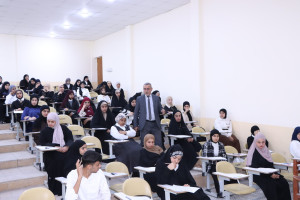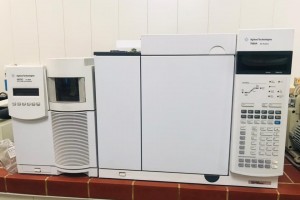
The College of Education for Pure Sciences, Department of Chemistry, University of Basra, discussed a master’s thesis on an analytical study for the removal of cadmium from polluted water using nanoscale calcium oxide.
The thesis presented by the researcher (Maha Abdel Ali Abdel Hassan) included the preparation of calcium oxide nanoparticles using the (sol-gel) method, where calcium salt was used as a base material and sodium hydroxide as a solvent. The nanomaterial was studied and diagnosed using various analytical devices. The nanostructure was studied using a scanning electron microscope, where the diameter of the prepared calcium oxide particle was within the range (20–70) nm and the particle shape was oval. And oxygen in the model reached (64%) for calcium and (22.1%) for oxygen.
The nanocomposite was detected and compared with the crude compound of calcium oxide by knowing the sites of the active groups using Fourier transform infrared spectrum (FTIR). Where the nanocomposite showed vibration within the region of the finger print at 410 cm-1 dependent on the vibration.

X-ray spectroscopy was used to determine the size of the formed particles and the crystal structures of calcium oxide, and the results were in agreement with the electron microscope images, where the size of the nanoparticle was calculated and it was (70) nanometers according to the Scharer equation.
The second part of the study dealt with the application of calcium oxide nanoparticles in the removal of cadmium, where certain concentrations of this element were selected as one of the heavy elements polluting water.
Cadmium was removed using the prepared nanoscale calcium oxide, where the study proved that calcium oxide has the ability to adsorb cadmium. It was estimated using a flame atomic adsorption device, and the percentage of cadmium adsorption on the surface of nano-calcium oxide was (81.11%).







